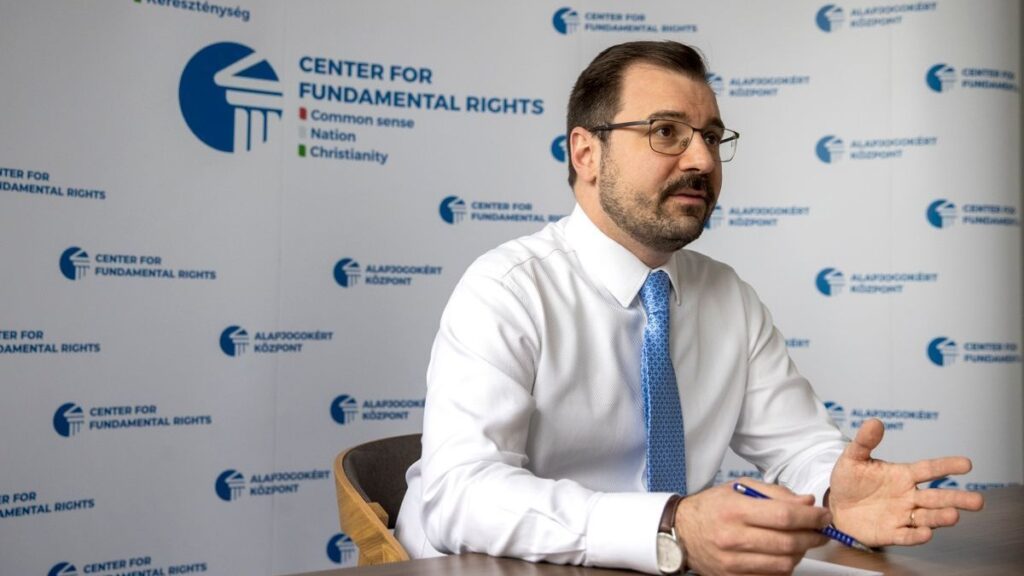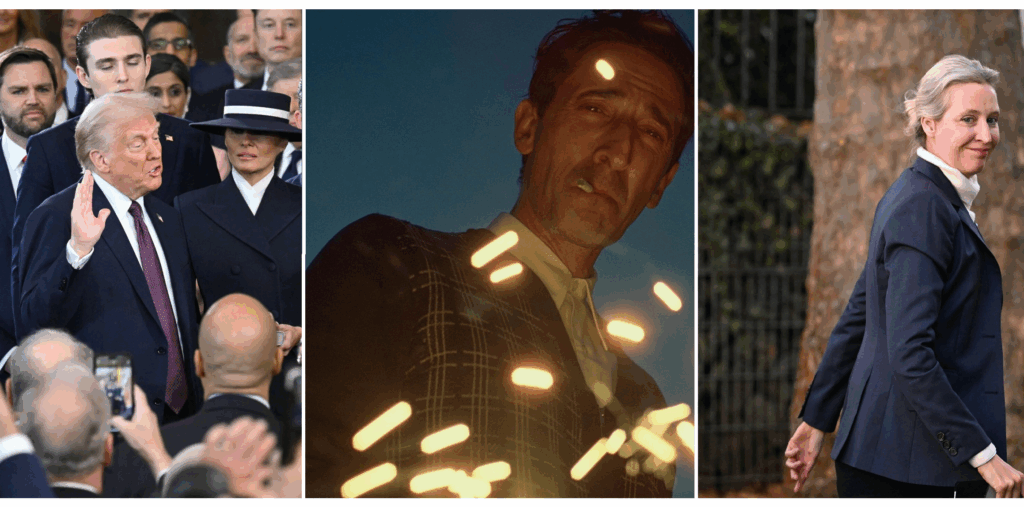Late this March in Madrid, the Atlantic got a tad less wide for conservatives—courtesy of Hungary.
When Charles V, the Holy Roman Emperor whose crowning in 1519 punctuated Spain’s feverish expansion through the Americas, set out to rule an ‘empire on which the sun never sets’[1], he knew he was hedging his megalomania with the endearing loftiness of an immortal phrase.
He is said to have borrowed it from Francisco de Ugalde[2], a little-known friar, but ancient sources from the Mideast and Mesopotamia had similarly conjured world-spanning realms, while a more plausible originator is Italian Renaissance poet Ludovico Ariosto, who would go on to coin no less a world-altering paradigm than ‘humanism’ itself (umaenismo). The phrase far outlived Charles V, whose son Philip II would enlarge the Low Countries, Austria, Spain, Sicily, Sardinia, Naples, and the Indies with new dominions.
King Henry of Portugal’s death in 1580 entrusted Philip with the namesake Southeast Asian archipelago, along with possessions in Micronesia and the Pacific, further expanding the sunlit landmass he would rule over at any time. Napoleon—and most famously the British Empire—toyed with variations of the selfsame phrase, too. Yet Charles V himself, its original vulgarizer, likely never imagined his underlying geostrategic fantasy—governing a vast domain always somewhere aglow—would come to define, six centuries hence, the ideational aspirations of another power. Certainly not a power from a would-be Habsburg land.
On March 20th this year, in a ritzy hotel in downtown Madrid, the Budapest-based Center for Fundamental Rights (CFR) launched its first office beyond Hungary’s borders[3]. Token though the step may seem, its implications for the national-conservative push being articulated out of Hungary cannot be overstated. Besides the less remote Iberian Peninsula, the ‘Center’ now runs a dedicated operation aimed towards the oft-neglected south of the Western hemisphere, amounting to twenty-two countries, nine time zones, two languages—and countless parties, think-tanks, civic groups, and allies spread from the borderland Rio Grande down to the Tierra del Fuego archipelago.
This empire of actionable ideas will grow by persuasion rather than force, not as a sovereign entity but as a loose constellation of like-minded partners comparing notes on their parallel journeys to power. Yet not unlike Charles V’s political empire, this Magyaro-Iberian network now has the potential of stretching so far and wide that it will always be daytime somewhere within it, or that nightfall will never sweep it entirely. In fact, in political terms, it is already dawn across most of it.
Choosing Spain’s capital for this epochal milestone wasn’t coincidental. The newly-launched Madrid outpost—located in the upscale Salamanca district, a few blocks away from Retiro park—will oversee and coordinate the Center’s relations with the ‘Iberosphere’. With Madrid vying, along with Miami, to be the capital of this ill-defined space, the neologism to describe it was coined in the last decade by sundry imperial nostalgics and popularized by Spain’s Vox party[4] to echo Jim Bennett’s notion of an ‘Anglosphere’[5]. Rather than a toponym, ‘Iberosphere’ refers to a realm of linguistic, cultural, and spiritual congruence, to the lands and peoples tracing their customs, their imaginary and their identity back to the Iberian Peninsula.
Whether this category encompasses other latitudes in Asia and Africa, also shaped by Spain and Portugal’s universalistic drives, has been left unanswered, likely for lack of political links to those regions following in the wake of language and faith. But don’t put these blinders past the Center, for even this Western-oriented move is one we never thought we would be making just a few years ago. We are proceeding step by step.
The step taps into linguistic and ideological avenues laid down before us, but it could have been directed elsewhere, as have other Hungarian outposts, such as the Brussels and Vienna branches of Mathias Corvinus Collegium (MCC), to name just two[6]. It is no secret that, for Hungary’s fourteen-year-old ‘model of conservative governance’ to reach its potential adherents in a non-adulterated fashion, the country keeps having to correct the plentiful lies and misinformation heaped upon it, even as it seeks to draw those allies into its orbit of intellectual influence, so that they can take inspiration from the laboratory it has become for policies their own countries could one day implement. In the age of division of labour, that means not dispatching friendly media mavens and spin doctors, but finding allies who can correct the record locally—and spread the underlying ideas in domestic terms.
Rather than through exploration, conquest and intermarriage, Hungary relies on personal affinities and ideological alignment to spread the Center’s values of ‘God, Homeland, Family’. Much as the Habsburg king took time to up his imperial game—thirteen years since rising to the throne as Duke of Burgundy in 1506 to being crowned Holy Roman Emperor in 1519—the isolation, smears and financial blackmail to which Hungary is routinely subjected have forced it to leave the comfort of the Carpathian basin, Central Europe and the Euro-right to go in search of new allies. Latin America is the latest terrain of opportunity, and the Center the latest explorer to brave the waters.
The Center has been a key player in that endeavor for a while, as part of a broad and plural ecosystem of para-political actors who can often reach further than diplomats and government spokespeople, where each plays a distinct but complementary role, much as tiles in a mosaic, or the different battalions in Charles V’s multinational army.
Though launched in 2013 as a wonky legal think-tank, early in Hungary’s journey of national renewal, our Center has grown to take on an expansive international mission that crystallizes every year at CPAC Hungary, the only offshoot of the notorious American conservative jamboree to be held on European soil, which held its third annual edition on April 25th and 26th this year[7]. That mission implies articulating, or helping assemble, national-conservative coalitions to tackle the threats looming over all Western nations: wokeism or neo-Marxism, federalism in Europe, and generally, the supranational channels that progressives globally employ to impose one-size-fits-all agendas to eviscerate life, the nation, and the family.
Looking at the geographical spread of those agendas, it is hard—even for us—to know what took us so long. Spain itself has been ruled by a far-left coalition since 2019, whose driving agenda isn’t just to eradicate Spanish nationhood, as we know it, in favor of a Bolivarian banana republic in a narrowing portion of its current territory[8].
Madrid also propagates gender ideology, fosters autocratic socialism across the Atlantic, and recreates itself in bashing Hungary at the European Union (EU)[9]. Ibero-America, for its part—our Spanish friends battling these headwinds would withdraw their welcome if we Francized the placename to “Latin America’, as is common in the Anglosphere—is unlike Western Europe and the US in one major respect, though with growing exceptions. Secularization has proceeded at a slower pace, churches and values-based organizations remain strong, and the repository of Judeo-Christian values keeps shaping public life—along with Hungary’s potential to build alliances.
Our common enemy is the São Paulo Forum, the network of far-left autocrats set up in the early 1990s by Cuba’s strongman at the time, Fidel Castro, and the increasingly strongman-like Lula da Silva, back in power in Brazil since 2022, to make up for the loss of the Soviet Union’s patronage through oil revenue and narcotrafficking[10]. The Forum has spent the past thirty years perfecting the not-so-dark arts of winning rigged elections. Yet to stay in power in the long-term, even with the rubberstamp of Western electoral observers, it is also hard at work to spiritually disarm and enfeeble the region’s peoples, stripping away their belief systems, rootedness, and collective sense of self. Alejandro Peña Esclusa, the first political prisoner in a São Paulo Forum-ruled country (Hugo Chávez’s Venezuela), has documented both tendencies—the election-rigging[11]and the cultural warfare[12]—extensively in his last few books, and was present at our Madrid office’s launch event in March.
Our allies are countering this effort in an increasingly coordinated fashion, but they need all the help they can get. Spain’s Vox party is a natural ally, and their parliamentary spokesperson, the Andalusian 29-year-old Pepa Millán, keynoted the event with a speech that emphasized that ‘what in Hungary has become a palpable reality, in Spain remains merely a wish, an aspiration’. Vox leader Santiago Abascal emphasized the same CPAC Hungary, as his party readies to achieve a blockbuster result at the upcoming European parliamentary elections in early June, along with virtually every party of the Euro-right.
Javier Milei’s win in Argentina, whose inauguration we witnessed in Buenos Aires, was doubtless a breath of fresh air[13] amidst the Forum’s roll of the past few years, or ‘pink tide’, that saw our allies defeated by Gabriel Boric in Chile, Gustavo Petro in Colombia, and Lula da Silva in Brazil. The week after the launch, we prolonged the effort by welcoming a delegation to Budapest to explore the opportunities for national-conservatives opened by Argentina’s eruption from its seemingly endless Peronist slumber[14]. Contrary to the New York Times’ (NYT) intent, recent news concerning Hungary’s role in Jair Bolsonaro’s legal defense[15] have strengthened our admiration towards him—not weakened it.
The Colombian right has been an ally, too, as evidenced by the fact that, out of the three Colombian statesmen in Madrid the two days prior to our event, two of them graced it with their presence: former President Andrés Pastrana and former Vice-President ‘Pacho’ Santos, the latter of whom served under former President Álvaro Uribe, also in Madrid then. Uribe had a plane to catch, unfortunately, but he would have smoothly blended in.
Chile is to be watched closely, despite the now-closed window of opportunity to translate the fundamentals of Hungary’s 2011 Fundamental Law to the failed constituent process stemming from the vandalism of the ‘social outburst’ (estallido social), and a mosaic of new civic groups that sprung from it ensured the country was well represented at our launch. Paraguay, which shares similar historical ordeals as Hungary’s, parallel political experiments, and the friendship of President Santiago Peña, has been waging a pent-up fight against global progressivism along similar lines[16].
Our network spans many other countries including Mexico, Perú, Ecuador, Bolivia, Guatemala, and more. Every one of these countries grew their delegation to CPAC in April, and new ones joined. Though the event’s electoral focus turned mostly towards the new European Parliament in June and the US election in November, future races will give us an opportunity to roll back the ‘pink tide’ in the Iberosphere, too, reminding all that the enemies we face are acting in unison—and so must we.
Alliance-building, in the meantime, is what the Madrid office will focus on. But the question, too, is what will follow when each of these allies fulfills the same objective Hungary reached in 2010 and has been renewing every four years since. Fidesz supplies a model of how to win elections, but also of how to govern wisely and serenely with the people’s support. As our Office Director, Vajk Farkas, emphasized in his opening speech, we would like the office to act as a bridge—a gateway, a transmission belt—between Hungary’s well-oiled conservative ecosystem, and those of the sister, Western nations of the Iberosphere.
Formerly Communications Director at the Presidency of the Hungarian Republic, International Director at our Center, and a senior diplomat in Madrid, Farkas emphasized that ‘whenever a conservative from Hungary would like to branch out to the Iberosphere, we would like the office to be the mediating point’. Conversely, ‘whenever an ally from the region would like to learn more about Hungary, we can act as the gateway’.
Given our attachment to national sovereignty and the irreducible diversity of our national predicaments, the parallel with Charles V’s imperial project may seem off base. But in intellectual terms, our network is spreading, and the opportunities to partake in it are becoming near universal, underpinned by values instinctive to the human condition. The aim of the new office will be to enable allies from both sides of the Atlantic to share ideas, projects, insights, experiences—and pathways to victory. The sun of conservative fortunes shines bright in Hungary, but it shouldn’t be the only latitude receiving the radiation. We would like our allies to bask in the glow, too.
[1] Martin Mutschlechner, ‘Charles V: the empire on which the sun never set’. Habsburger.net (n.d.). https://www.habsburger.net/en/chapter/charles-v-empire-which-sun-never-set
[2] Jorge Álvarez, (2023, December 11). ‘The Origin and History of the Phrase “The Empire on which the Sun never sets,” used since Antiquity’, LBV Magazine English (11 December 2023), https://www.labrujulaverde.com/en/2023/12/the-origin-and-history-of-the-phrase-the-empire-on-which-the-sun-never-sets-used-since-antiquity/
[3] Edgardo Pinell, Los conservadores de Hungría y España se unen para «hacer a Occidente grande otra vez». El Debate (20 MaRCH 2024), https://www.eldebate.com/internacional/20240320/conservadores-hungria-espana-unen-hacer-occidente-grande-otra-vez_183513.html
[4] Javier Martínez, ‘Qué es la “iberosfera”, la galaxia en la que vive Abascal’, infoLibre (22 October 2020), https://www.infolibre.es/politica/iberosfera-galaxia-vive-abascal_1_1189081.html
[5] James C. Bennett, The Anglosphere Challenge: Why the English-Speaking Nations Will Lead the Way in the Twenty-First Century, Rowman and Littlefield, 2004.
[6] Upton, B. (2023, May 23). Scholars fear influence of Orbán-linked college after expansion. Times Higher Education (THE). https://www.timeshighereducation.com/news/scholars-fear-influence-orban-linked-college-after-expansion
[7] AP News, ‘Hungary’s Orbán urges European conservatives, and Trump, toward election victories at CPAC event’, AP News (25 April 2024), https://apnews.com/article/hungarys-orban-boosts-trump-at-cpac-event-0eb4b7165847cbfca65f5333d7bb972c
[8] Author, D. /. (2023, November 13). The strange death of Spain | Jorge González-Gallarza | The Critic Magazine. The Critic Magazine. https://thecritic.co.uk/the-strange-death-of-spain/
[9] CFR Editors, ‘A Conversation with Pedro Sánchez’, Council on Foreign Relations (18 September 2018), https://www.cfr.org/event/conversation-pedro-sanchez
[10] Pew Research Center, Religion in Latin America – Widespread Change in a Historically Catholic Region, Pew Research (13 November 2014), https://www.pewresearch.org/religion/2014/11/13/religion-in-latin-america/
[11] Alejandro Peña Esclusa, The Electoral Frauds of the São Paulo Forum (Spanish version), Dipon Ltda, 2023
[12] Alejandro Peña Esclusa, The Sao Paulo Forum’s Cultural Warfare, Verdad Colombia, 2022
[13] Jorge González-Gallarza, The once and future Right?, The Critic (22 January 2024), https://thecritic.co.uk/the-once-and-future-right/
[14] Alapjogokért Központ, ‘Milei and the common-sense agenda’ [Video, 2 April 2024], YouTube, https://www.youtube.com/watch?v=8Dm1_L_XoE8
[15] Jack Nicas, Christoph Koettl, Leonardo Coelho and Paulo Motoryn, ‘Bolsonaro, Facing Investigations, Hid at Hungarian Embassy’ (video) (25 March 2024), The New York Times, https://www.nytimes.com/2024/03/25/world/americas/jair-bolsonaro-hungary-video.html
[16] Jorge González-Gallarza, ‘Paraguay Athwart Liberalism’, The European Conservative (7 July 2023), https://europeanconservative.com/articles/analysis/paraguay-athwart-liberalism/







